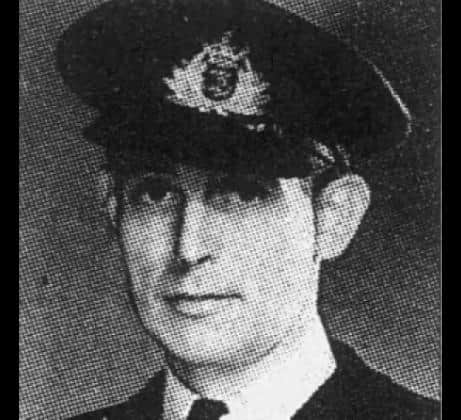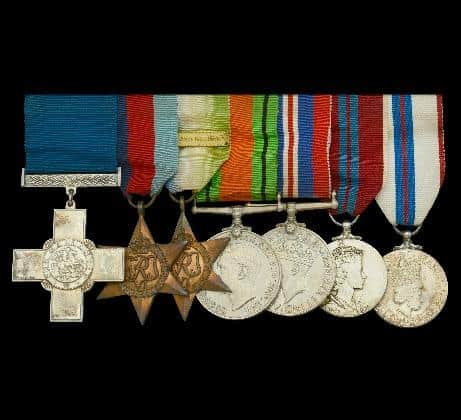Chichester man's George Cross - earned after he survived being buried alive during The Blitz - expected to fetch up to £120,000 at auction
and live on Freeview channel 276
Sub Lieutenant Easton, who died in Chichester in 1994, was a member of the Admiralty’s secretive Land Incident Section was buried alive by the detonation of a parachute mine in London’s East End in 1940.
When he was pulled from the rubble, he was found to have a broken back, a fractured skull, and two broken legs. His assistant Ordinary Seaman Bennett Southwell, was even less fortunate, and his decapitated body was found some six weeks later.
Advertisement
Hide AdAdvertisement
Hide AdAn experienced disposal expert, Easton never thought the fateful East End job could be his last. Quoted in Wavy Navy: By Some Who Served, he later recalled: “Of course, I did not know this would be my last assignment in mines disposal work when I left the Admiralty before breakfast that morning and was carried by car to Hoxton. At the back of the minds of us who did this work was an acceptance that there probably would be a ‘last.’ In defence of our sanity, perhaps, to stop us leaping from the cars that carried us to each assignment, or maybe just in case we began to think ourselves heroes, we did not dwell on this probability. It was there. But suppressed. If and when the ‘last’ mine came... well it came. Several of our section had found it; some, less fortunate than I, did not live to tell the story. My ‘last’ buried me in rubble for several hours with my back broken and other injuries, and it kept me in plaster for the best part of a year.”


Before the incident put him out of commission, Easton had defused some 16 mines across the war-torn landscape of Blitz-era London, including one which had crashed through the roof of the Russell Hotel in Bloomsbury, and wound up hanging from a chandelier in the dining room.
Nimrod Dix, Head of Medal Department and Deputy Chairman of Noonans, the auction house set to sell Easton’s medals said of the incident: “the grateful hotel owner presented Easton with a cheque for £140 - and an offer of Sunday lunch for his family for life - but both had to be rejected ‘as a matter of honour.”
Easton was born in Maidenhead in May 1906, was educated at Brighton College and Pangbourne Nautical College, prior to training as a solicitor and joining his grandfather’s law firm in the City of London. He was awarded the George Cross on September 23, 1941, while still in hospital. The Admirality sent three cases of champagne to his hospital bed and told him to listen to the six o’clock news, where the award was announced.
Advertisement
Hide AdAdvertisement
Hide AdAfter a year in plaster, Easton made a remarkable full recovery and subsequently served as an MMS 6 (June -August 1942) and MMS 66 (August 1942-February 1943), prior to taking command of the MMS 22. In June 1944, he was leading a Minesweeping flotilla off Normandy, when a new type of German oyster mine detonated under his ship, wounding him for the second time.


After the war, Easton returned to his family’s law firm, where he was a committee member of and legal advisor to the V.C. and G.C. Association from 1957-94.
Easton’s George Cross, alongside his other medals, will be auctioned as Lot No 35 by Noonans Mayfair on April 10.